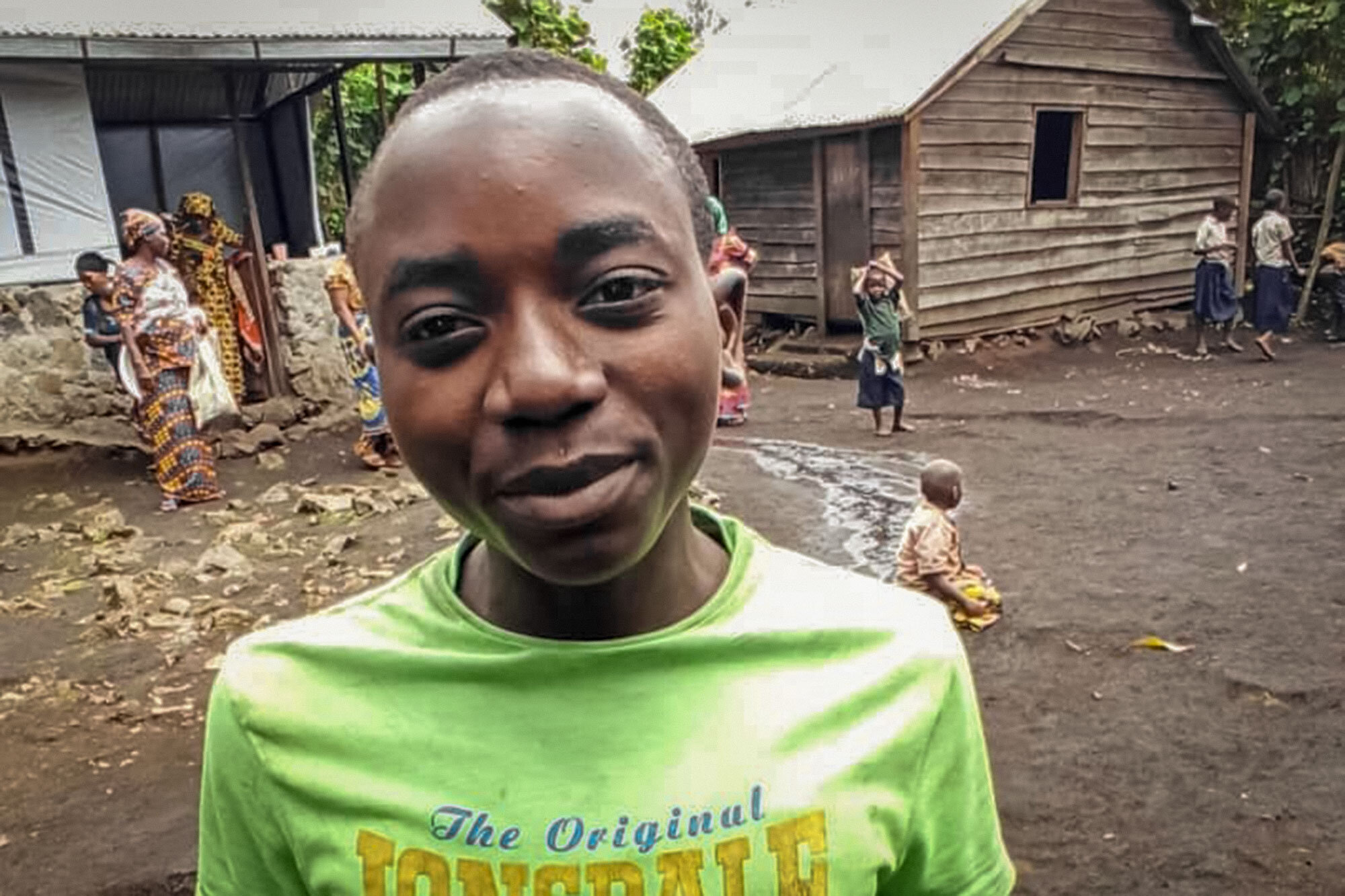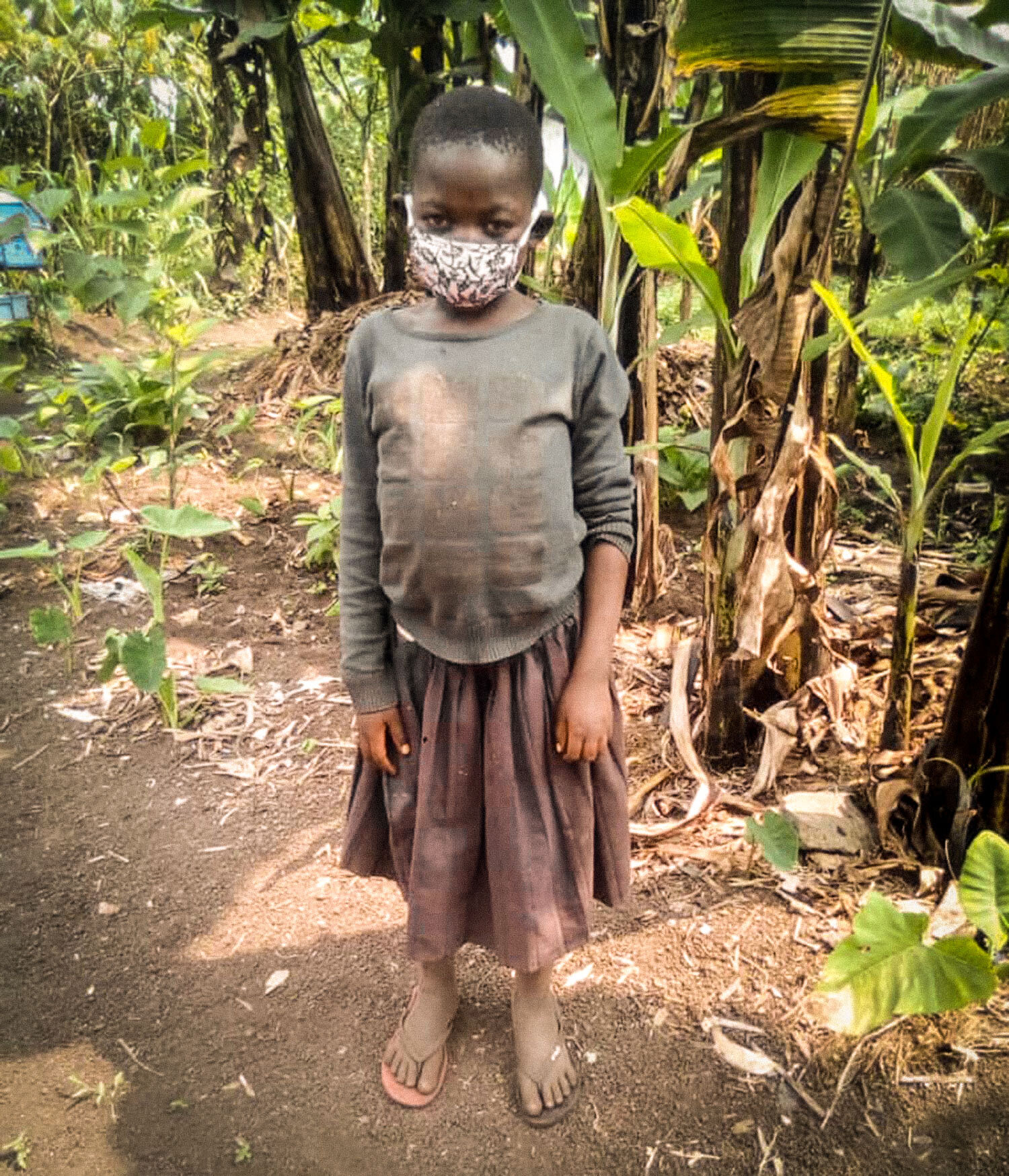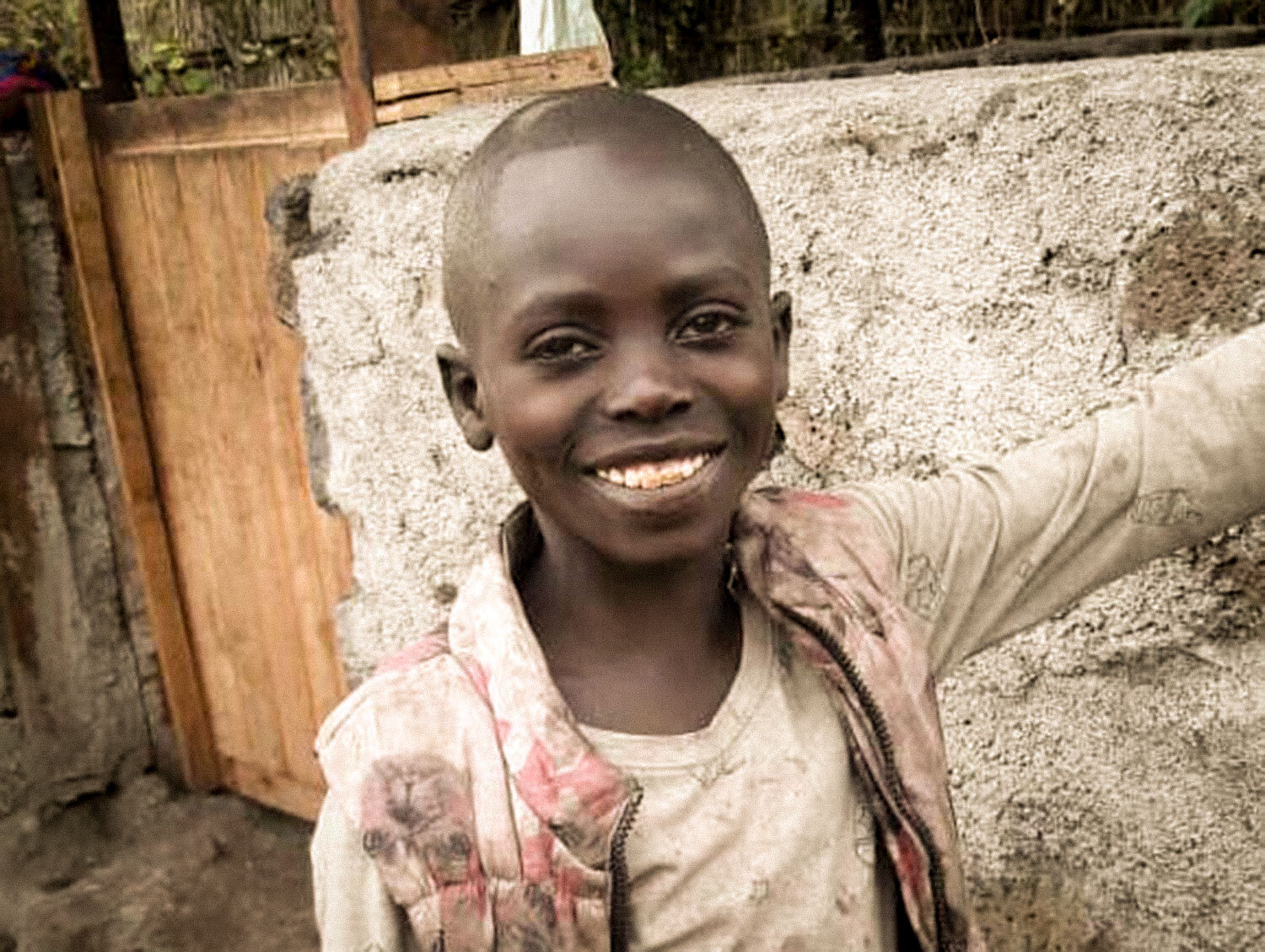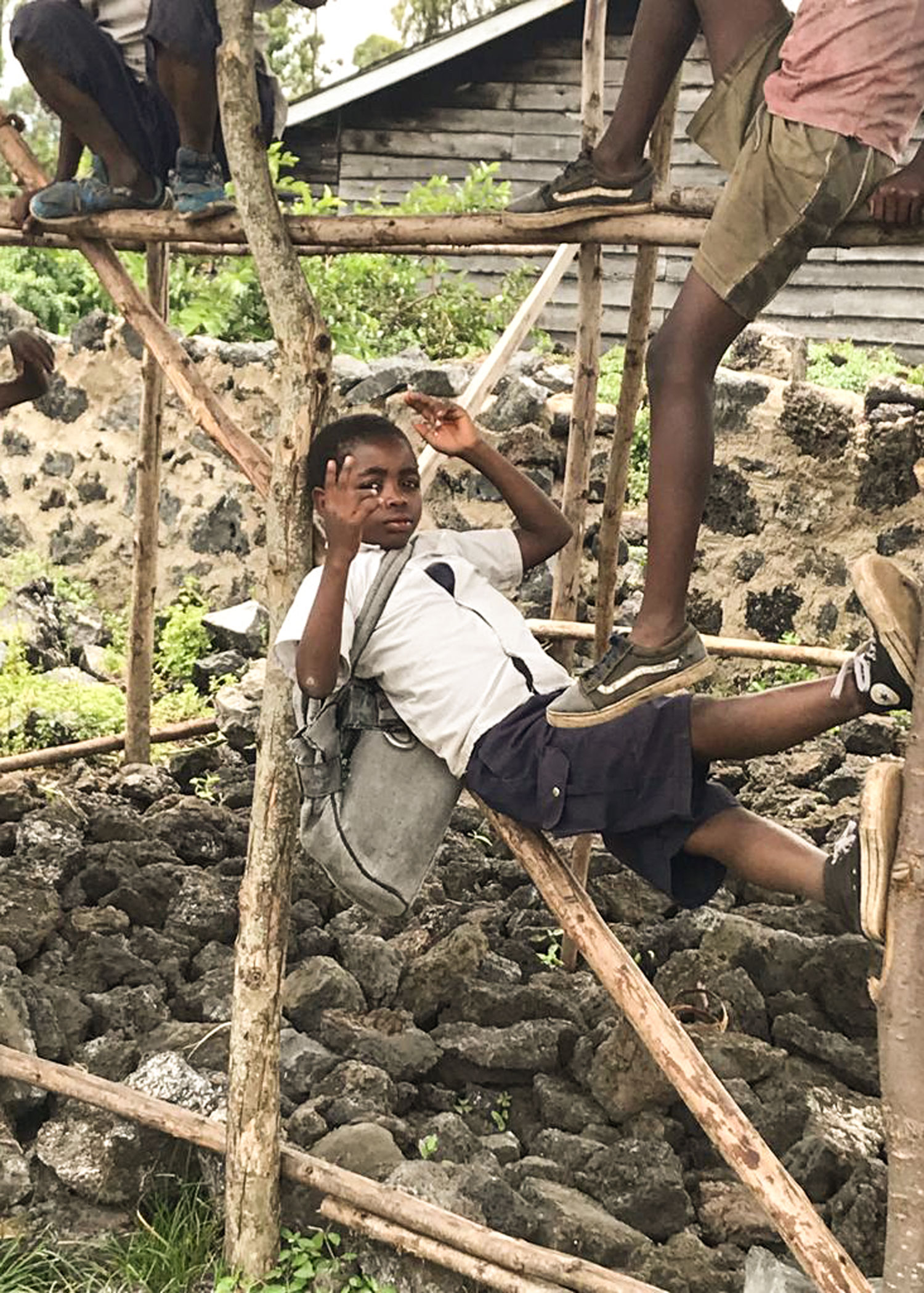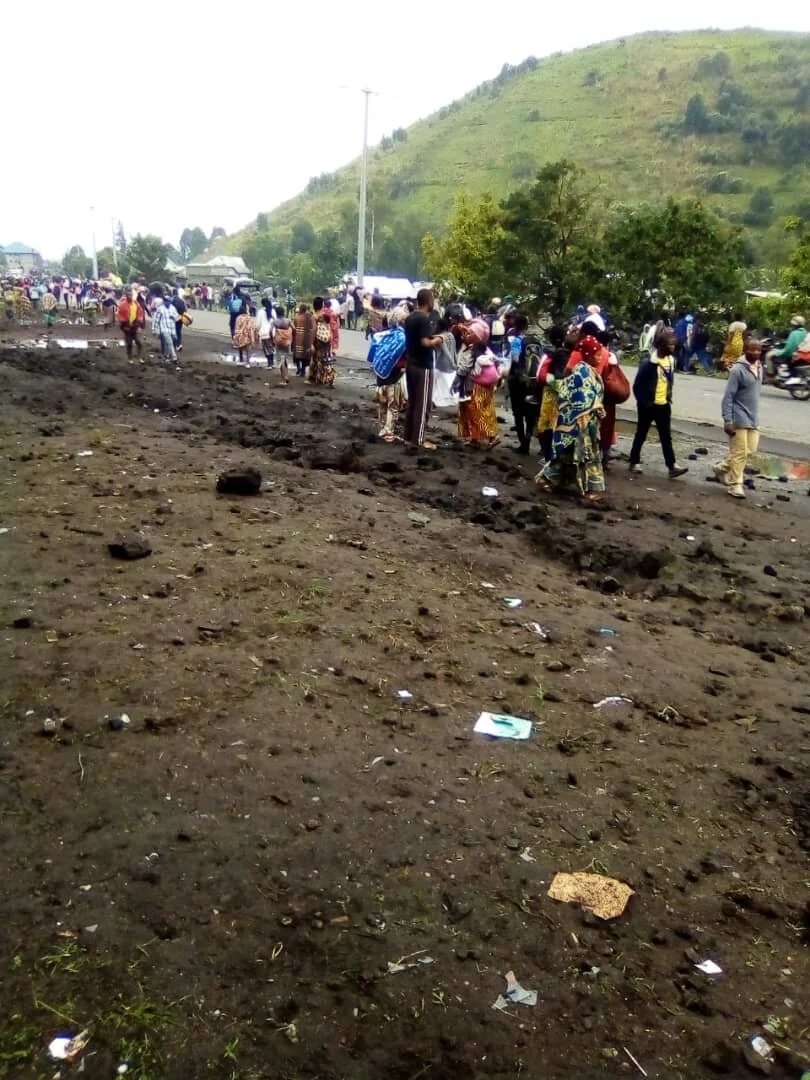The Story of Luhonga Community
Goma is located in the North-East of the Democratic Republic of the Congo (DRC), bordering Rwanda. Goma is an area characterised by instability where rebel groups have consistently launched attacks. Its recent history has been dominated by the Rwandan genocide in 1994, the aftermath of which saw a huge number of people fleeing and settling in the DRC, as well as the environmental destruction caused by an active volcano, Nyiragongo.
The majority of the people living around the villages of Goma are refugees from other communities who fled the ongoing armed conflict. Food security is a daily battle, made worse by recent drought and food price spikes in neighbouring East African countries. Families primarily feed themselves by growing their own food, however, families living as refugees have no access to land, and when they informally plant fields, the harvests are regularly raided by rebels in the region. A large portion of the land, normally used for agriculture, is unable to be used because of frequent volcanic activity. The gases released from the volcano are filled with unhealthy toxins, resulting in a growing number of illnesses. It is in this region where the community of Luhonga lies.
180 Children currently supported
15 Care Workers Coordinated By Chenge
Basic Services Started in 2012
34 kM from the Goma Local Office
Luhonga is a rural community located outside Goma in mineral-rich Masisi territory. Luhonga is, in essence, an informal refugee camp. In Luhonga Community, many children suffer and die from malnutrition and preventable diseases like malaria. The nearest clinic is near Goma, but this is about a two hour walk from Luhonga through the mountains along a dangerous road. The long walk and high clinic fees make accessing medical care for the most vulnerable extremely challenging. Thankfully, there is a nurse at the clinic named Precious* who has a heart of compassion. She is passionate about caring for the most vulnerable children and often travels the long distance to Luhonga to visit the patients. She recently started a small clinic in Luhonga to serve the children more effectively and efficiently.
There are little to no employment opportunities in Luhonga which results in women walking high into the mountains to find wood to sell in the local market. But journeys like these are extremely dangerous for women.
Women are often exposed to abuse by either the rebel forces or government soldiers. The World Health Organisation states that, ‘Sexual violence against women and girls continues to be used as one tactical element of warfare by most of the armed parties involved in the conflict.’ Additionally, they found that, ‘Women that have been raped also suffer from several forms of social exclusion. Many women are rejected by or prevented from returning to their families, and are very likely to end up at a very low socio-economic status, lacking financial support with few income-generation opportunities. Children of rape victims are often rejected, neglected or stigmatised too.’
According to UNICEF, since 1996, sexual violence against women and children in the eastern part of the DRC has been used to torture and humiliate women and girls and destroy families. Margot Wallström, the UN’s special representative on sexual violence in conflict, says that the DRC is “the rape capital of the world.”
There is also a high rate of child labour, which can be seen everywhere in and around Luhonga, and children work extremely hard just to survive. It is within this desperation that Hands at Work has partnered with volunteer Care Workers from the Luhonga Community Based Organisation (CBO) to care for 155 of the most vulnerable children. Care Workers are committed to ensuring that the children receive a hot, nutritious meal daily and are supported with their education and basic health care. Yet the care that the children receive extends far beyond the physical. Care Workers visit the children in their homes and are dedicated to sharing the love and hope of Christ!
When local African volunteers were walking to visit a grandmother on a Holy Home Visit in Luhonga Community, a young girl who had previously been seen at the Care Point was seen watching them from a distance. She was one of the children who did not receive food, but came every day with the hopes of being given any leftovers. It was clear that she was extremely vulnerable and in need of care and attention. The girl’s name was Sarah*, and she was 14 years old. When she was identified as amongst the most vulnerable, she had already been suffering from malaria for three weeks and had not eaten for days. Sarah’s story was a familiar one: her mother had died when she was young, and her father had remarried, having more children with his second wife. It was clear that Sarah was not loved or cared for. Sarah was one of ten siblings but was the only child who had survived. She was brought to the clinic where she stayed for three days to recover. The whole village in Luhonga watched this story unfold and it became a beacon of hope for the Care Workers.
The land that had been used for the Life Centre was not a long-term solution, especially with the heavy rains as the children did not have a sheltered place to gather under to eat. In 2016, a piece of land was donated to Hands at Work for use as a new Life Centre. The local Hands at Work team in Goma built a perimeter fence, which, although basic, allows the property boundary to be enforced and the contents onsite to be hidden and guarded. A lockable toilet was constructed which ensures that the children have access to a hygienic and clean toilet when they come to the Life Centre. The chief in Luhonga gave the Care Workers a secure brick room next to his office where they can lock the food, ensuring that it does not get stolen. In 2019, a cooking shelter used by the Care Workers to prepare the daily meals for children and a proper gate were constructed. Additionally, the shelter on the Life Centre land - which was constructed in 2018 - was upgraded.
The Democratic Republic of Congo (DRC) has been plagued by decades of war. Hands at Work has been serving in DRC communities devastated by this unrest since 2006. The north-eastern province around the city of Goma has continued to experience the constant threat of rebel attacks and war. The level of violence has increased over the years, affecting communities where Hands at Work serves, resulting in children and their families having to flee their villages for their own safety. This escalating instability around Goma is highlighting the reality that families in the DRC face. They are fighting for their daily survival.
In the community of Luhonga, the most vulnerable children and their families had to flee and a temporary refugee camp was initiated by Hands at Work away from their community. Thankfully, the Care Workers continued to serve the children faithfully. Each day, the children received a hot, nutritious meal at the Care Point in the camp, and the Care Workers grew both in their knowledge of Jesus and in their relationships with one another. In February 2025, after nearly three years of living in these displacement camps, our families from Luhonga and Katembe returned safely to their communities and began the long and difficult process of rebuilding their lives.
The local Hands at Work team in Goma currently supports three Community Based Organisations near Goma, which exist to care for the most vulnerable in their communities. The office provides training, networking, and encouragement to those Community Based Organisations like Luhonga. It also gives administrative support, including helping with funding proposals, monitoring and evaluation, bookkeeping and reporting to donors.
BE INSPIRED BY UPDATES FROM Luhonga COMMUNITY
